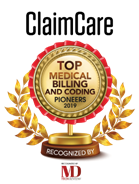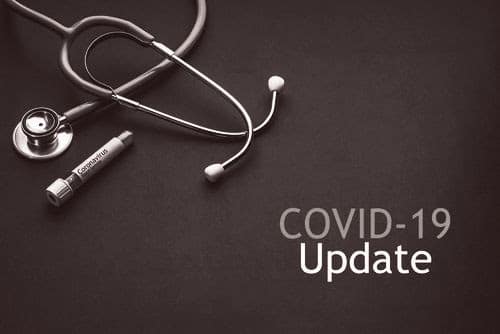
On February 26, 2021, the Centers for Medicare & Medicaid Services (CMS), together with the Department of Labor and Department of the Treasury, issued new GUIDANCE that removes barriers to COVID-19 diagnostic testing and vaccinations, and strengthens requirements that plans and issuers cover diagnostic testing without cost sharing.
This CMS guidance raises some key points and a few questions that need to be inspected by Healthcare Compliance Attorneys of providers/organizations involved with testing and vaccinations. With this blog post we are providing further details about the CMS guidance and we are highlighting questions that the affected providers/organizations need to have answered by your Healthcare Compliance/Billing Attorney.
Key Points and questions:
- It is critical that individualized medical necessity screens remain in place.
-
- This guidance document makes it clear that any testing done without “individualized clinical assessment” would be considered either public health surveillance or a job requirement and would not be required to be paid by insurance companies.
- It is critical to get the interpretation of these new guidelines from a healthcare compliance and billing legal expert because there are some unclear areas in the guidelines. Specifically:
-
- On the one hand, the document says that payers cannot deny coverage of a COVID-19 test for lack of medical necessity. On the other hand, they say that payers must assume when they receive a claim that it reflects an "individualized clinical assessment." This seems to imply there has in fact been a medical necessity determination by a medical provider.
- If an "individualized clinical assessment" does imply the presence of a medical necessity, then how does the example of "I want to be sure I am COVID-19 free before seeing my parents" require such assessments to be modified so that a COVID-19 test is approved for reasons of this nature?
- The document seems to emphasize the importance of an individual seeking the test vs the test being required for Public Health Surveillance or employment. How does the distinction between a test being required interact with medical necessity of a test that is determined via an “individualized clinical assessment?”
-
-
- If I am seeking a test because I need to show clear results to attend an optional event like a ballgame, a concert, a visit to a nursing home, a cruise, etc., then if prior to testing I have an “individualized clinical assessment” (e.g., a screening questionnaire), does that meet the criteria for a billable test since I am seeking the test so that I can attend an optional event AND I am receiving an individualized screening for medical necessity? These examples seem extraordinarily similar to the specific example given by CMS of an asymptomatic person with no know exposure having the COVID-19 test covered because the person wants to visit a parent or relative.
- If I need to have a clear test for my job AND I have an individualized medical necessity screen applied, is there any reason that the test cannot be billed to insurance if I show medical necessity through this “individualized clinical assessment?” Prior to this CMS clarification, payers had to cover a COVID-19 test when a medical necessity screen based upon symptoms or potential exposure warranted it. Does the fact that in some situations, such as “I want to visit my parents,” traditional medical necessity based upon symptoms or exposure risk seems to no longer be a requirement mean that a medical necessity screen can no longer be used to justify insurance billing of employee tests justified by exposure or symptoms and ordered via an “individualized clinical assessment?” In other words, has the medical necessity screen lost importance in determining if you can or cannot bill insurance for employees?
- Does any of this impact the wording of agreements that might be put in place with organizations requesting testing to help to ensure the language in the agreement does not run afoul of any of the public surveillance and employment testing exclusions?
More Detail behind the points and questions above:
There are a few key areas on the CMS guidance document that prompted the questions I outlined above. As you can see on the document, there are 13 questions that are asked and answered. I spotlight Question 2 and the answer supplied by CMS:
Q2 – May plans and issuers distinguish between COVID-19 diagnostic testing of asymptomatic people that must be covered, and testing for general workplace health and safety, for public health surveillance, or for other purposes not primarily intended for individualized diagnosis or treatment of COVID-19?
Answer – Yes. Plans and issuers must provide coverage without imposing any cost-sharing requirements (including deductibles, copayments, and coinsurance), prior authorization, or other medical management requirements for COVID-19 diagnostic testing of asymptomatic individuals when the purpose of the testing is for individualized diagnosis or treatment of COVID-19. However, plans and issuers are not required to provide coverage of testing, such as for public health surveillance or employment purposes. But there is also no prohibition or limitation on plans and issuers providing coverage for such tests. Plans and issuers are encouraged to ensure communications about the circumstances in which testing is covered are clear. To the extent not inconsistent with the FFCRA’s prohibition on medical management, plans and issuers may continue to employ programs designed to detect and address fraud and abuse.
This is the section that prompts the questions about whether “individualized screening” moves a test form the public surveillance realm to the covered test realm. The concern is whether loosening the “medial necessity” guidelines apparently to allow individuals to have covered COVID-19 tests for any reason they deem necessary impacts the weight “individualized screening” has held in relation to COVID-19 testing up to this point in terms of justifying billing based upon medical necessity.
The answer below to Q1 in the guidance document is what creates the uncertainty between the purpose of “individualized clinical assessment” when reasons such as “visiting my parents” now are covered for testing.
“When an individual seeks and receives a COVID-19 diagnostic test from a licensed or authorized health care provider, or when a licensed or authorized health care provider refers an individual for a COVID-19 diagnostic test, plans and issuers generally must assume that the receipt of test reflects an “individualized clinical assessment” and the test should be covered without cost sharing, prior authorization or any other medical management requirements.”
This statement is also what makes it critical that you have a screening that results in a "yes" where a doctor orders the test or a "no" where a doctor does not order the test. As long as the doctor does not order test for people that do not pass the screen then it should fall under the “individualized clinical assessment” point made above.
Finally, the document also emphasizes the importance of an “individualized clinical assessment” when it says test must be covered "...when a licensed or authorized healthcare provider administers or has referred a patient for such a test."
Conclusion:
Obviously, this blog post poses more questions than it does clear guidance. However, as has been the case from the beginning of COVID-19, these situations are unprecedented. As such, the devil is in the “legal details.”
I would argue that all of this guidance means:
- Medical necessity is still required,
- The scope of medical necessity has expanded, and
- As long as an individual screening for medical necessity is used, individuals meeting the new medical necessity guidelines are billable to insurance.
What is far from clear is exactly how this guidance specifically expands the definition of “medical necessity.”
Thus, as emphasized in the beginning of this blog post, it is critical to obtain your Healthcare Attorney’s opinion on all the points and questions outlined in this post and in the CMS GUIDANCE document.
About ClaimCare ®
ClaimCare has 30 years of medical billing experience. We have an established 100% USA-Based medical billing team that has been assembled through a thorough pre-employment screening. All personnel participate in on-going training and strong process management to ensure they deliver only the highest quality medical billing services to clients.
ClaimCare has once again been named a “Top 10 Medical Billing and Coding Company.” The honor this time comes from MD Tech Review. The magazine’s Augmenting Medical Billing and Coding Operations article presents solid reasons why ClaimCare has been chosen for this recognition.

For more information, contact sales@claimcare.net, or phone toll-free at (855) 376-7631, or visit the ClaimCare Medical Billing Company website. We can assist your practice and/or facility in numerous ways, including complete certification processing.
100% USA-Based HIPAA-Compliant Medical Billing Company

 The Biden Administration is ending the COVID19 Public Health Emergency May 11, 2023. This blog is intended to assist you with that transition which includes important coding and
The Biden Administration is ending the COVID19 Public Health Emergency May 11, 2023. This blog is intended to assist you with that transition which includes important coding and![]() billing items that will change because of the end of the PHE. Even if you believe that you are no longer involved in the treatment of or diagnostics for COVID, if you are doing any kind of remote patient care, laboratory, or Telemedicine then you will need this information moving forward. It is hard for a medical provider to be Medical Billing Experts on all relevant topics. ClaimCare is here to help.
billing items that will change because of the end of the PHE. Even if you believe that you are no longer involved in the treatment of or diagnostics for COVID, if you are doing any kind of remote patient care, laboratory, or Telemedicine then you will need this information moving forward. It is hard for a medical provider to be Medical Billing Experts on all relevant topics. ClaimCare is here to help. 




